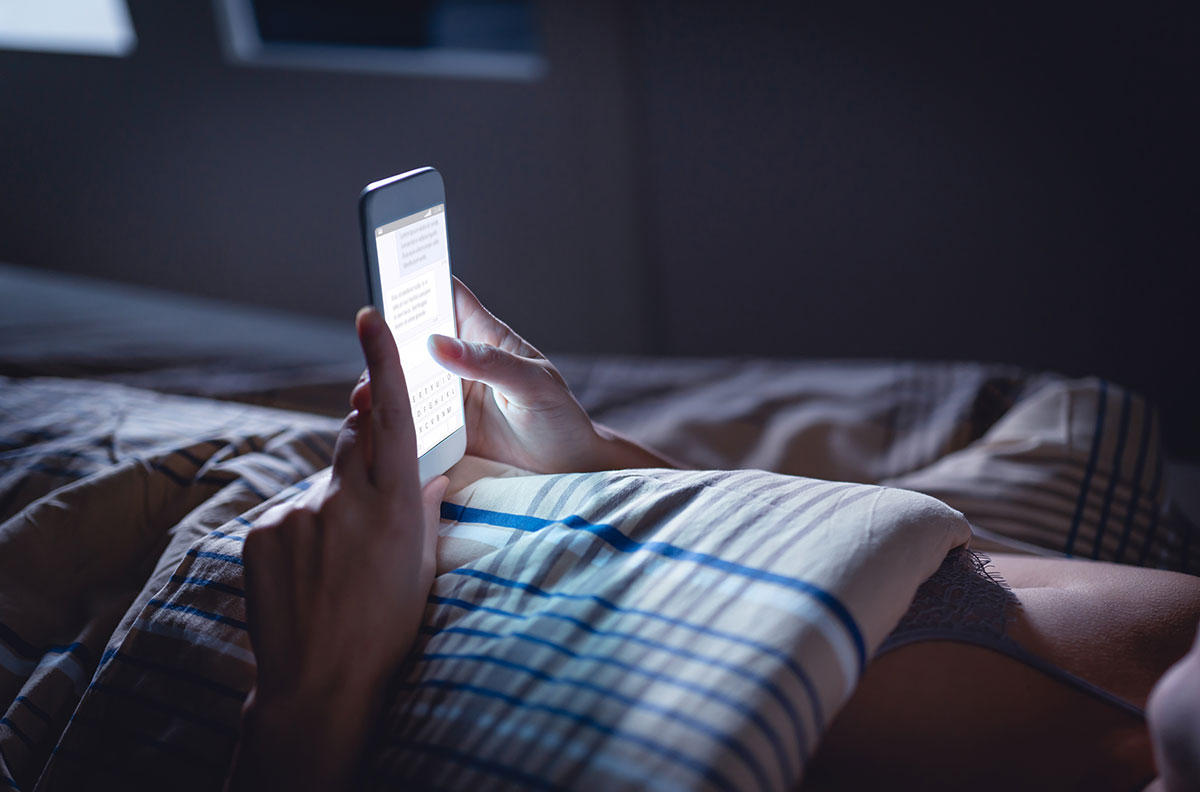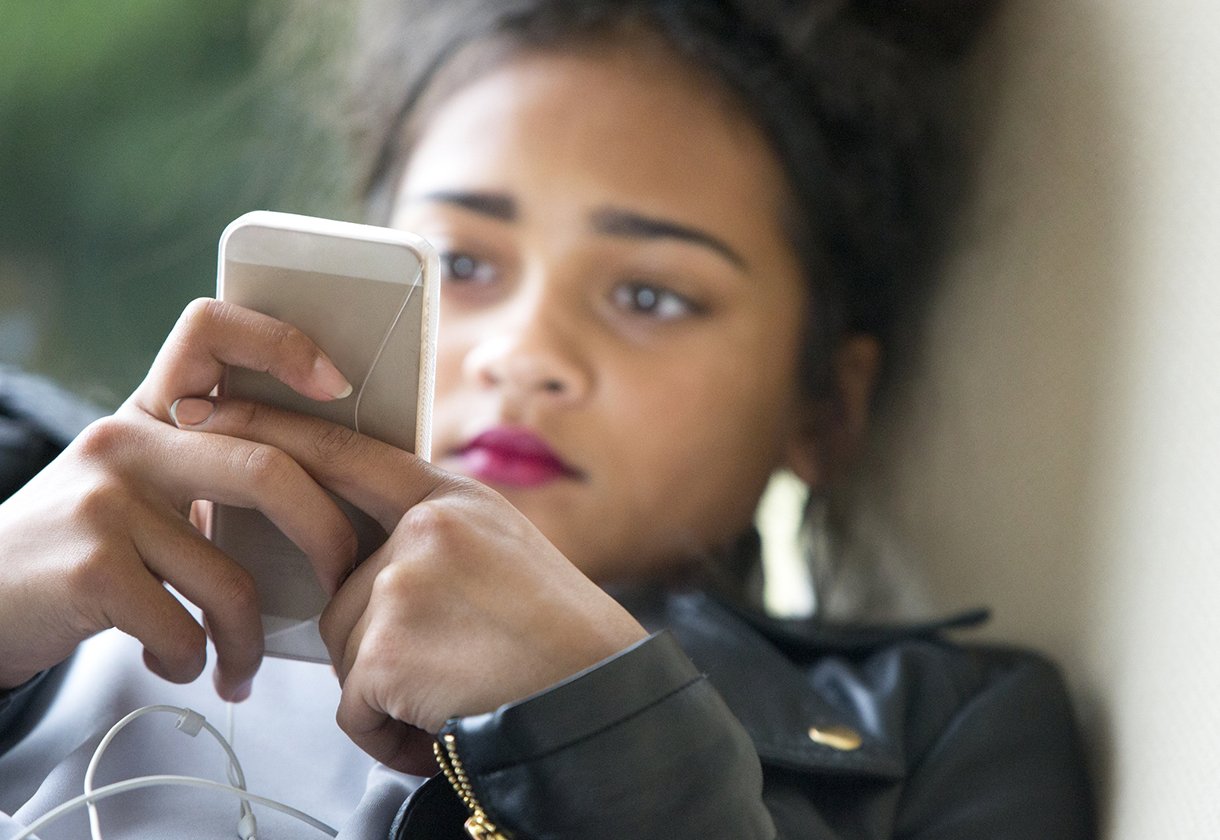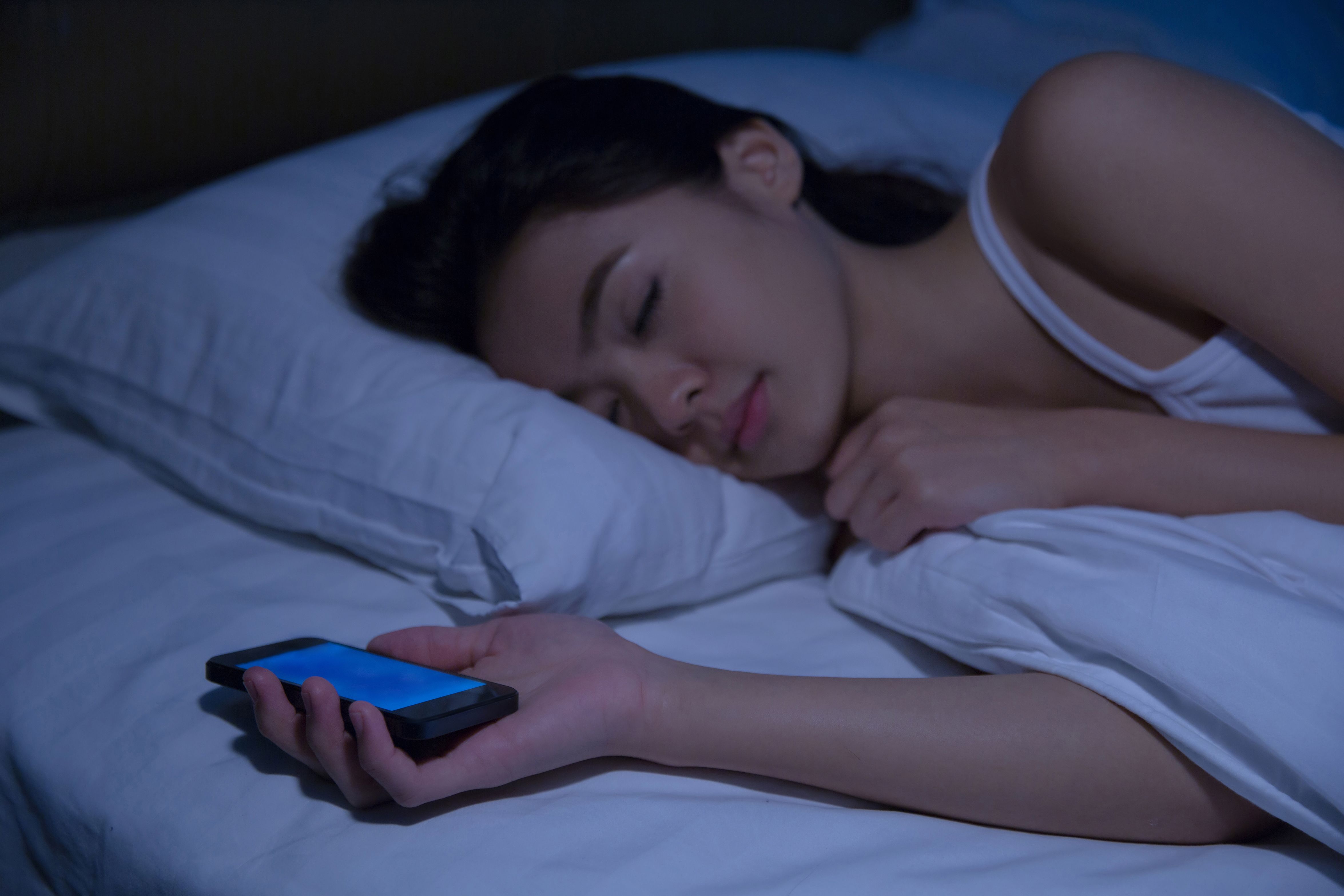Social media is more of an identity in the present age. Virtually everyone, especially the younger individuals, makes use of social media. And to be honest, social media has a lot of its own advantages. However, as much as beneficial social media use can be, it is riddled with certain negatives among which the deprivation of sleep, especially among teens stands out as notable. The importance of sleep, for both adults and teens, is huge and can never be overemphasized. Insufficiency of sleep can bring about so many risks to the human body and this encapsulates why this post exists. We will try to highlight if indeed social media use can mess with sleep among teens and if so, how this happens. Of course in doing this, we will be relying on statistical facts and research with solid academic backing.
Studies on how social media affects teen’s sleep
For the most part, a study from the University of Glasgow carried out not so long ago will be the bedrock of our findings and analysis. This study realizes that teens that spend a lot of their time using social media usually have poorer sleep by multiple measures at night. No doubt, this discovery won’t come as a surprise to a lot of us.

Nevertheless, the realization vividly paints how tech can be detrimental to the sleep cycles of humans, especially among teens who are probably those that need it the most. The study which was published in 2015 in the journal of BMJ Open had access to very comprehensive data. The team considered information from around 12,000 teenage participants that were taking part in the UK Millennium Cohort Study. Most of them were between the age of 13 and 15.
The team reported on a wide variety of lifestyle variables that include social media habits. Among many other things, the study considered how many times the participants used social media platforms like Facebook, WhatsApp, and Twitter in a day. Apart from this, the study also made the teenage participants disclose the amount of sleep they got on both school days and weekends. This was asked along the lines of sleep onset and wake times, the amount of time it always took them to fall asleep as well as any form of trouble falling asleep back after waking up at nighttime.
Relevant statistics
As part of the study, there was a breakdown in the amount of time that the participating teens spent on social media which is quite interesting. The breakdown reveals that a bit below 32% claimed to spend up to three hours daily on different social media platforms and it was considered as average use by the research team.
According to the research, teenagers that spent under one hour daily using social media were low users and they constituted around 34% of the participants. On the other end, there were also classifications for high users and very high users. High users spent between three to five hours daily using social media and they made up 14% of the participants.
Very high users constituted almost 21% of the participating teenagers, spending over 5 hours a day on social media. And honestly, it is not that shocking that the percentages of high and very high users were that high considering how much addicted a lot of teens are to social media platforms like Facebook, Instagram, Twitter. As a matter of fact, many of them have devised different means to boost their use of these platforms, looking for ways to get many followers, many likes on a post etc. For instance, it is very possible to get instant likes on your Facebook, Twitter, Instagram etc posts through the use of certain tools.

The research goes further to highlight how the quality of sleep was linked to the use of social media among teens, owing to the fact that they spent more hours daily on the various social media platforms resulting in poorer sleep across several variables. The research highlights how very high users differ from the average ones they were like 70% more likely to sleep only after 11om on school nights and also after midnight on weekend nights. In addition to this, very high users were more likely to complain about having trouble falling asleep back after nighttime waking. In the same vein, it was more likely for both high and very high users to report waking up later after 8 am on school days, unlike average users.
These findings seemed to be especially true for teen girls because generally, they tended to use social media more than the boys did. From the study, it became evident that the least likely to report issues related to sleep were low social media users.
Of course, apart from this research carried out by the University of Glasgow in 2015, there are several other findings, researches and expert opinions that highlight how the use of social media may mess with sleep among teens. All in all, the thing that can be derived is that adults generally use social media less and arguably better than teens. There are so many positives you can get through the use of social media. For instance, through a social media provider, you can be aware of the very important trends to help you build and better your brand. However, its negatives cannot be ignored and on top of that is how it affects the ability of teens to sleep properly when they use it to an extent.
Opinions on how social media affects teen’s sleep
The chairwoman of the child and adolescent faculty, Royal College of Psychiatrists, Dr. Bernadka Dubicka has similarly expressed her concerns over the damaging effects that social media can have on teens because sleep is one of the most important things to every student. She believed that lack of sleep can be hugely disadvantageous as it is usually related to not only bad academic performance but also poor mental health. What this means is that teens that use social media too could suffer from sleep issues which might make them lag behind in the classroom which is never the joy of parents. According to Dr. Bernadka Dubicka, the biggest threat to sleeping well for many teenagers is using screens in the last hour before bed and this something barely avoidable for very high users of social media.
Furthermore, Dr. Max Davie who is the officer for health improvement at the Royal College of Pediatrics and Child Health has also given an expert opinion about the excess use of social media among teenagers of today and how this could not only affect their sleep circles, but also other aspects of their productive lives (by extension). In fact, he recommended that young people should stay off all screens for not less than an hour before bed. He believes that this will allow their brains to get enough time to wind down which makes it a lot easier to fall asleep.
In addition, Dr. Max Davie also explained the science behind the difficulty of sleep among very high users of social media. The content that they are viewing as well as the light that the screens emit can increase stimulation of the brain which would make it hard for anyone constantly exposed to it to fall asleep. He also cautioned against falling for the trick of “night modes” that many manufacturers brag of these days. While a lot of them claim these modes have been introduced to emit less blue light, it seems there is no convincing evidence yet that they are actually effective.
Another notable person that has expressed concerns over the high use of social media and how it could birth detrimental effects for teens in the UK MPs on the Commons science and technology committee. He stated in clear terms that it cannot be denied that too much use of social media leads to not damaged sleep patterns, but also body image issues as well as bullying and online grooming. He believes that since social media use puts the teens at risk of not sleeping properly, it can hamper their proper growth and development in life since the insufficiency of sleep can be a causative factor of mental imbalance and poor academic performance.
Lastly, many more people have given expert opinions as to why social media use among teens can hamper their ability to have good cycles. For example, the UK’s leading doctors, led by Professor Dame Sally Davies, the outgoing chief medical officer similarly expressed their concerns over the issue. They even took it a step further by putting certain responsibilities on the parents considering how stubborn, obstinate and carefree a lot of teens tend to be. They said that fathers, mothers, and guardians should not allow their children to take not only mobile phones but also any other electronic device into their bedrooms or make use of them during mealtimes. It is believed that in so doing, teens will not be able to use social media which could end up being quite disastrous to their sleep patterns.


